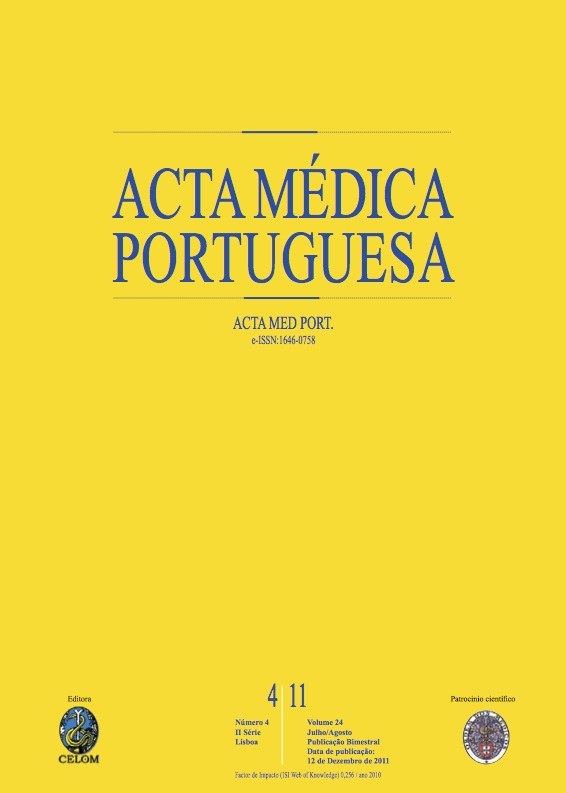Barriers in access and utilization of health services among immigrants: the perspective of health professionals.
DOI:
https://doi.org/10.20344/amp.492Abstract
The growing international migration has reinforcing the importance of a greater adequacy of health services in order to respond effectively to immigrants' needs. Previous studies indicate that several difficulties in the access and utilization of health services persist for some immigrant groups. The objective of this study was to understand the perspective of different health professionals' groups about the barriers in access and utilization of services by immigrants. In a transversal study a questionnaire was applied to 320 primary health care professionals of Lisbon and Tagus Valley. Differences between professional groups were analysed using the Kruskal-Wallis test. To determine which groups diverged more in their perceptions, mean ranks of each group were compared. Of the total participants, 64.2% evaluated their knowledge and competencies to deal with immigrants as reasonable however, 15.2% evaluated it as bad. Around one third of professionals admitted to be unaware of the legislation which regulates migrants' access to services. The largest proportion considered that, at the individual level, the frequent change of residence, the lack of economic resources, the cultural and religious beliefs and traditions, the fear of denunciation when the immigrant is undocumented, the lack of knowledge about legislation and services, and the linguistic differences influence access and utilization of health services. Most considered as barriers at the professionals' and services' level the limited sociocultural skills, the complex bureaucratic procedures, the cost and the lack of interpreters. The divergences in the perception of these factors occurred mainly between office workers and the other professionals. The perceptions of health professionals about the barriers in access and utilization of services by immigrants highlight opportunities for intervention in the context of cultural diversity. Given the different perceptions among the professional groups, which may be reflection of the functions they perform, it is reinforced the importance of developing appropriate training to the different professional profiles. The capacity-building of health professionals to deal with cultural diversity may be an important component of human resources training, contributing to better adequate services to the needs of the immigrant.Downloads
Downloads
How to Cite
Issue
Section
License
All the articles published in the AMP are open access and comply with the requirements of funding agencies or academic institutions. The AMP is governed by the terms of the Creative Commons ‘Attribution – Non-Commercial Use - (CC-BY-NC)’ license, regarding the use by third parties.
It is the author’s responsibility to obtain approval for the reproduction of figures, tables, etc. from other publications.
Upon acceptance of an article for publication, the authors will be asked to complete the ICMJE “Copyright Liability and Copyright Sharing Statement “(http://www.actamedicaportuguesa.com/info/AMP-NormasPublicacao.pdf) and the “Declaration of Potential Conflicts of Interest” (http:// www.icmje.org/conflicts-of-interest). An e-mail will be sent to the corresponding author to acknowledge receipt of the manuscript.
After publication, the authors are authorised to make their articles available in repositories of their institutions of origin, as long as they always mention where they were published and according to the Creative Commons license.









